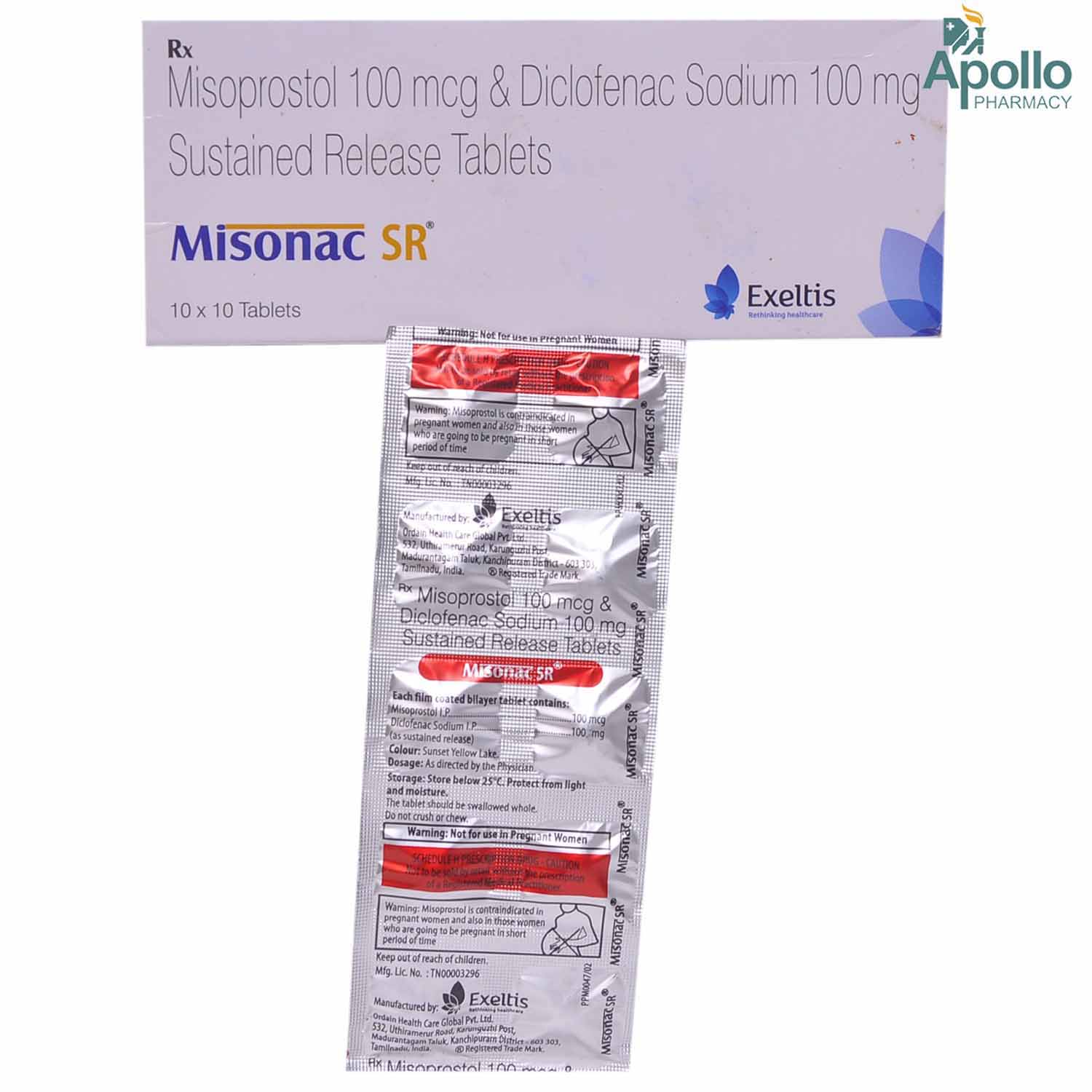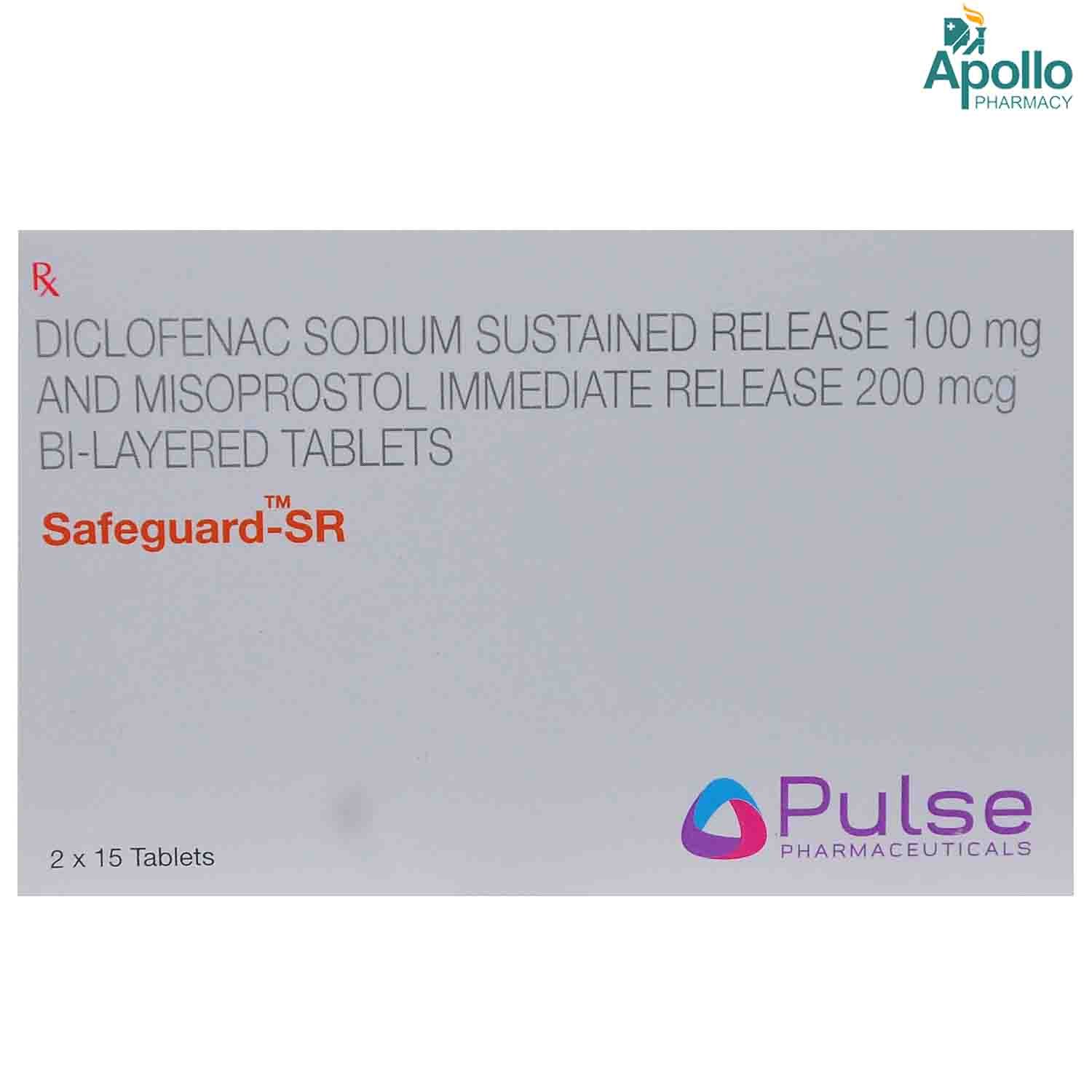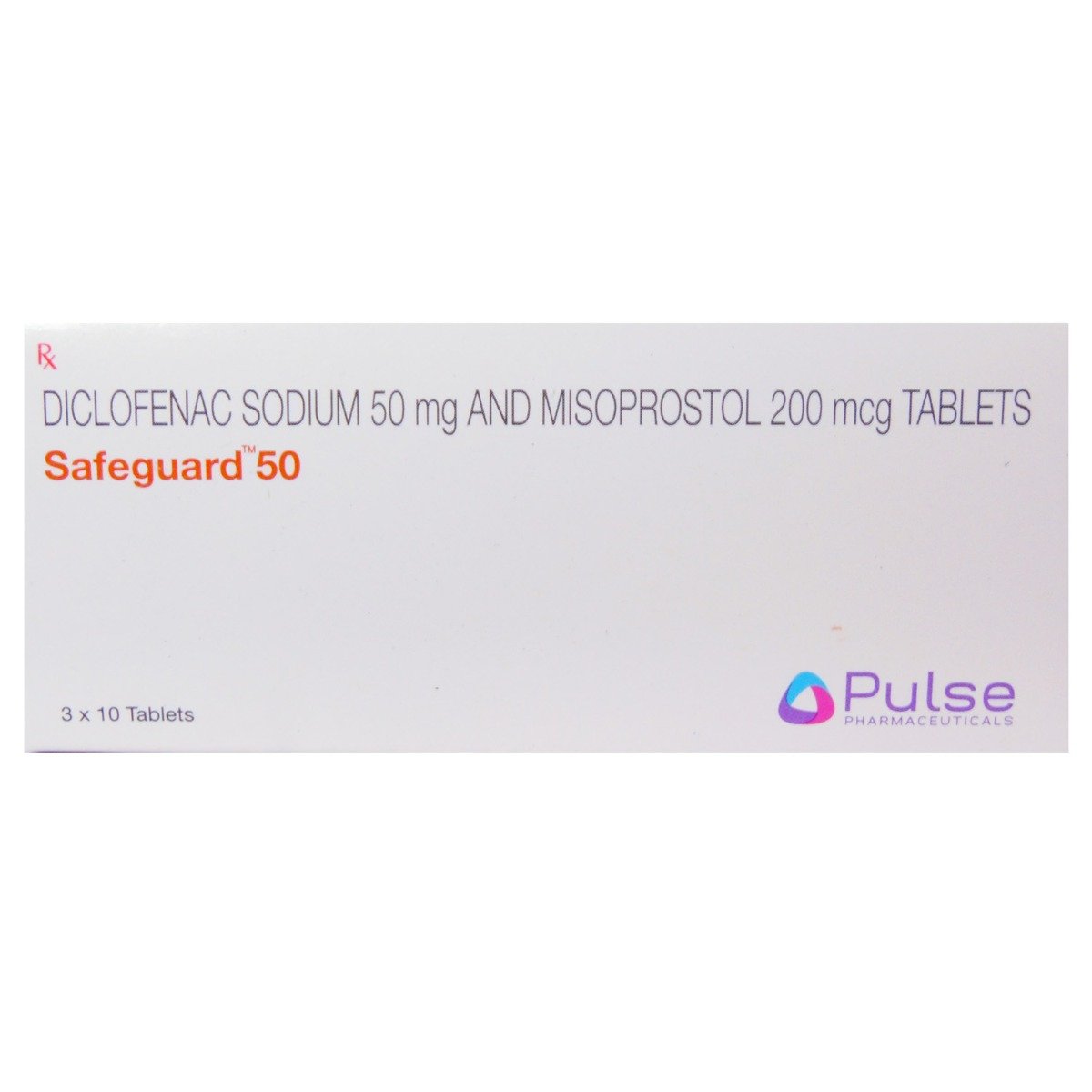Diclofenac+misoprostol
About Diclofenac+misoprostol
Diclofenac+misoprostol belongs to a class of non-steroidal anti-inflammatory drugs used to reduce pain and swelling in the joints associated with conditions such as osteoarthritis, rheumatoid arthritis, and ankylosing spondylitis (pain and stiffness in the backbone). Arthritis is a condition that causes swelling of one or more joints resulting in pain and stiffness of joints that worsen over time. The arthritis symptoms include joint pain, stiffness, redness, tenderness, swelling in and around joints, and reduced movement of joints.
Diclofenac+misoprostol is a combination drug containing diclofenac and misoprostol. Diclofenac works by blocking the chemical effect of an enzyme called cyclo-oxygenase (COX), which produces prostaglandins (mediators of pain and inflammation) that are responsible for the sense of pain and inflammation (redness and swelling). Misoprostol is a prostaglandin that helps to protect the stomach from diclofenac's irritating effects. It works by protecting the stomach lining by reducing the amount of acid in contact with it.
Take Diclofenac+misoprostol as prescribed by your doctor. Depending on your medical conditions, you are advised to take Diclofenac+misoprostol for as long as your doctor has prescribed it for you. You may experience diarrhoea, stomach/abdominal pain, nausea, heartburn, drowsiness, and dizziness. Most of the side effects of Diclofenac+misoprostol do not require medical attention and gradually resolve over time. However, if the side effects are persistent, reach out to your doctor.
Before using the Diclofenac+misoprostol, tell your doctor if you have had a heart attack or stroke, stomach or bowel disorder, liver disease, porphyria ( inherited blood disorder), asthma, high blood pressure, diabetes, and stomach or intestinal bleeding. Do not take Diclofenac+misoprostol if you are a pregnant or breastfeeding woman. Consumption of alcohol should be avoided during the treatment with Diclofenac+misoprostol as it may lead to an increased risk of liver damage. Diclofenac+misoprostol is not recommended for use in children. Limit alcoholic beverages while on this medication.
Uses of Diclofenac+misoprostol
Medicinal Benefits
Diclofenac+misoprostol is used to treat aches and pains and musculoskeletal and joint pain problems due to arthritis. Diclofenac+misoprostol contains diclofenac and misoprostol. Diclofenac works by blocking the chemical effect of an enzyme called cyclo-oxygenase (COX), which produces prostaglandins (mediators of pain and inflammation) that are responsible for the sense of pain and inflammation (redness and swelling). Misoprostol is a prostaglandin that helps to protect the stomach from diclofenac's irritating effects. It works by protecting the stomach lining by reducing the amount of acid in contact with it.
Directions for Use
Storage
Side Effects of Diclofenac+misoprostol
- Diarrhea
- Stomach/abdominal pain
- Nausea
- Heartburn
- Difficulty sleeping
- Ulcers in the stomach or intestines
- Drowsiness
- Dizziness
- Indigestion
Drug Warnings
Consumption of alcohol should be avoided during the treatment with Diclofenac+misoprostol. Patients with stomach ulcers, gastric bleeding, heart failure, and high blood pressure should not take Diclofenac+misoprostol. If pregnant or breastfeeding, do not take Diclofenac+misoprostol without talking with the doctor. Diclofenac+misoprostol is not recommended for children below 18 years old. Seek medical help immediately if you have signs of a heart attack or stroke. Stop using Diclofenac+misoprostol and call your doctor immediately if you notice heart problems, kidney problems, liver problems, or stomach bleeding signs.
Drug Interactions
Drug-Drug Interactions: Other pain medications such as aspirin, ibuprofen, naproxen, celecoxib, indomethacin, meloxicam, blood clotting agents (warfarin), blood pressure-lowering agents (hydrochlorothiazide), antacids, Lithium (used to treat mental problems).
Drug-Food Interactions: Do not consume alcohol along with Diclofenac+misoprostol to avoid unpleasant side effects like gastric bleeding.
Drug-Disease Interactions: Peptic ulcers, gastric bleeding, severe heart failure, liver/kidney problems, diabetes, asthma, and high blood pressure.
Drug-Drug Interactions Checker List:
Safety Advice

Alcohol
unsafeDo not consume alcohol along with Diclofenac+misoprostol as it can cause unpleasant side-effects like gastric bleeding.

Pregnancy
unsafePlease consult your doctor if you are pregnant; your doctor will prescribe Diclofenac+misoprostol only if the benefits outweigh the risks. Taking Diclofenac+misoprostol in the last 20 weeks of pregnancy may cause serious kidney or heart problems in the unborn baby.

Breast Feeding
cautionWhile Diclofenac+misoprostol may pass in the lactating mother's breast milk, So, do it is advisable to take it only if prescribed by your doctor.

Driving
cautionDiclofenac+misoprostol may cause dizziness and drowsiness. So, if you observe such symptoms, do not drive.

Liver
cautionLimited information was available for the use of Diclofenac+misoprostol in patients suffering from liver impairment. Please consult your doctor if you have any concerns regarding using Diclofenac+misoprostol in patients with liver impairment. Your doctor will prescribe only if the benefits outweigh the risks.

Kidney
cautionLimited information was available for the use of Diclofenac+misoprostol in patients suffering from kidney impairment. Please consult your doctor if you have any concerns regarding using Diclofenac+misoprostol in patients with kidney impairment. Your doctor will prescribe only if the benefits outweigh the risks.

Children
unsafeDiclofenac+misoprostol not recommended for children under 18 years of age.
Habit Forming
Diet & Lifestyle Advise
- Include more glucosamine, chondroitin sulfate, vitamin D, and calcium-enriched supplements. Besides this, turmeric and fish oils can help reduce inflammation in the tissue.
- Do not go for heavy exercise as it may increase your joint pain in arthritis. Instead, you can do stretching and low-impact aerobic exercises like walking on a treadmill, bike riding, and swimming. You can also strengthen your muscle strength by lifting light weights.
- In chronic arthritis or joint pain, try to include fish like salmon, trout, tuna, and sardines. These fishes are enriched with omega-3 fatty acids that minimize the level of cytokines, which ramp up inflammation.
- Your sitting posture is important, especially when you have pain and inflammation. Try to sit as little as possible and only for a short time (10-15 min). Use back support like a rolled-up towel to minimise pain at the back of your curve. Keep your knees and hips at a right angle. Besides this, you can use a footrest if required.
Special Advise
Patients Concern
Disease/Condition Glossary
Osteoarthritis: Osteoarthritis is a degenerative joint disease in which the two ends of the joints come together due to the breakdown of a protective covering of cartilage. Due to the absence of this protective covering, the joints rub against each other, leading to pain and stiffness. Symptoms of osteoarthritis include pain, stiffness, inflammation, and tenderness. The main reason for osteoarthritis is age. The older you are, the more likely you could get osteoarthritis, thus known as degenerative disease, meaning that the joints wear out as a person ages. Other reasons include past injuries such as torn cartilage, dislocated joints, and ligaments.
Rheumatoid arthritis: Rheumatoid arthritis is an auto-immune disease (the body's immune system attacks its tissue), leading to joint pain and damage. Symptoms include pain, swelling, stiffness, deformities, and loss of joint function.
Ankylosing spondylitis: It causes pain and stiffness in the spine. The pain usually starts in the lower back and can spread to the neck, damaged joints, or other parts of the body. Ankylosing spondylitis includes decreased flexibility, which usually leads to hunched-forward posture, pain, and back and joints.
FAQs
Diclofenac+misoprostol contains diclofenac and misoprostol. Diclofenac works by blocking the action of cyclo-oxygenase (COX) enzyme in the body involved in the production of certain chemical substances such as prostaglandins that cause pain and swelling. Misoprostol is a prostaglandin that helps to protect the stomach from diclofenac's irritating effects. Thereby, Diclofenac+misoprostol helps in relieving pain and swelling associated with different types of arthritis.
No, Diclofenac+misoprostol is not a narcotic pain killer. It belongs to the non-steroidal anti-inflammatory drugs (NSAIDs) group of medications.
Yes, Diclofenac+misoprostol can cause dizziness in some patients. They may experience symptoms such as the feeling of fainting, weakness, or lightheadedness.
Diclofenac+misoprostol may increase the risk of heart problems such as heart attack, especially when used in high doses or for a prolonged duration, and in patients who are smokers, have high blood pressure, diabetes, or high cholesterol. It is advised to inform your doctor if you have any of these conditions or have a history of heart problems or stroke before taking Diclofenac+misoprostol. However, it is recommended to take Diclofenac+misoprostol in the dose and for the duration as prescribed by your doctor.
Diclofenac+misoprostol is not recommended for asthma patients as it may worsen the condition. Therefore, please inform your doctor if you have asthma or a history of asthma due to the use of aspirin or any other non-steroidal drugs.
No, Diclofenac+misoprostol does not cure arthritis. Diclofenac+misoprostol is only used to relieve symptoms of arthritis such as joint pain, swelling, and stiffness.








